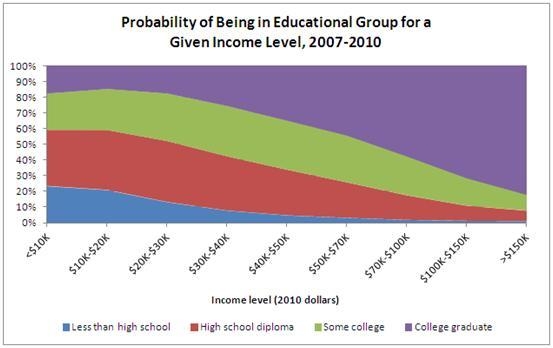- + New Debate
- Debate News
- About
- Debra AI More
frame
Howdy, Stranger!
It looks like you're new here. If you want to get involved, click one of these buttons!
Communities
- 8.3K All Communities
- 254 Technology
- 1.9K Politics
- 675 United States
- 590 Global
- 65 Immigration
- 1.9K Religion
- 229 TV SHOWS
- 60 Movies
- 77 History
- 44 Work Place
- 475 Philosophy
- 411 Science
- 62 Earth Science
- 9 Books
- 101 Economy
- 34 Investments
- 14 Europe
- 10 Tea
- 7 Coffee
- 59 Sports
- 42 Products
- 283 News
- 13 Airplanes
- 33 Cars
- 851 General
- 9 Mafia Games
- 24 Art And Design
- 20 Space
- 50 Military
- 3 Premium Member
 DEBATE NEWS
DEBATE NEWSMoving? Here's how to transfer internet service, hassle free
Need internet at your new home ASAP? Here's how to set up a simple, painless transfer that'll have you online in no...
In this Debate
US Higher education has negative overall impact
Debate Information
I also believe that colleges are unhelpful sources of liberal social propoganda, and unjustified costs that severely burden both parents and students. while I believe in overall value of college education, the entire system needs a major transformation drastically reducing costs and preventing liberalists breeding ground.
https://www.insidehighered.com/news/2017/07/11/dramatic-shift-most-republicans-now-say-colleges-have-negative-impact
- Live Poll
US Higher education has negative overall impact
8 votes- Agree - overall negative75.00%
- Disagree - overal Positive or neutral25.00%
Persuaded Argument
-
Ok, before anything I am going to do some analysis of the topic. US higher education is clearly indicating college and 4-year university schools in the US as evident not just from the common vernacular and usage of the term higher education, but the argument that the original poster used. Secondly, the debate topic talks about an overall negative impact. Thus, if I can find that there are more positive impacts of higher education, I win the debate.
First and foremost, college degree owning individuals typically are benefitted in the workforce. Adam Looney and Michael Greenstone of the Hamilton Project at the Brookings Institute, a policy think-tank, shows that those who end up receiving a college degree are roughly nine times as likely to make over $100,000 a year than those with just a high school diploma. In fact, the graph that was published with the report shows that even some college education gives you an advantage over those with high school diplomas as well as high school drop outs:

The horizontal axis is the income level, notice that those with some college education make higher incomes typically when compared to those with a high school diploma, (recognized on the graph as red,) and those who did not complete high school, (recognized as blue,) (1). This makes sense, as employers for wealthy corporations typically hire those who are more educated and qualified for the job and not settle for someone who hasn’t attended college. While some degrees are more competitive than others, by just having college experience, you have already given yourself a qualification for employers to see. The Pew Research Center furthers this trend, showing that the disparity in income between those with a college degree and those without it has been the largest in years, meaning that more than ever a college degree is going to make you more money despite mounting student debt and other concerns. Not only this, but of those surveyed it was determined that you were less likely to live in poverty and more likely to be employed if you had a degree (2). This trend of the increasing importance of a post-secondary education will likely continue as well. Georgetown University published a report in 2014 about the economic outlook of the US in the year 2020, and estimates conclude that 55 million jobs will be created from a mix of job growth and the retirement of baby boomers, while the amount of jobs that require some sort of college degree increases to 65% (3). A lot of this could be explained by the increasingly tech savvy nation that we have become, meaning that industries such as IT would become more formalized in colleges. After all, cyberattacks on critical infrastructure have become not only huge political talking points, but generally something to be concerned about. Also, jobs by baby boomers would largely be vacated, including those who have taken work in prominent industries, such as clerical work, management, and accounting which do require some sort of formal education to attain. Finally, as healthcare costs skyrocket and the US becomes unhealthier in the future as obesity, heart complications, and other medical issues become more popular, doctors and nurses must be medically trained to treat people, especially with a climbing population rate. USA Today in November of 2014 looked at data provided by Medscape, a medical news site and listed the most popular medical problems in the US, many of them involving having high cholesterol, triglycerides, and blood pressure that is associated with obesity (4). These problems need to be treated by those with the medical expertise to do so, especially given the harmful side-effects of these issues that could lead to heart attacks, diabetes, and a multitude of other health issues that could prove fatal (5).
Second, those who attend college establish a network through socialization. The networking one does through college is important in the future for job opportunities, and the importance seems impossible to understate. The Balance in June of 2017 reports on the numbers that LinkedIn provided showing that 70% of people hired at a company had a connection there before they were hired (6). The social activity that college provides would allow those with no affiliation to businesses through family connections to make some through fraternities, extracurricular activities, student government, or just making friends with others. The skills that are needed to network follow people throughout life as well, which mean you develop skills early to network with others, allowing it to pay off later in life and making job searching that much easier. While it is not impossible to socialize with others without college experience, there isn’t as many opportunities that college provides. There are no fraternities, clubs, or other functions outside of college that allows you to meet people similar in age and demographic that will be able to help you all throughout life, and college will facilitate the process of networking more than any random encounter in high school or elsewhere.
Finally, lets weigh arguments against what the original poster determined as harmful. He claims that colleges want to spread liberal propaganda and are inherently biased. I won’t necessarily disagree, as there typically is a liberal bias in a lot of universities, but that doesn’t take away at all from the economic benefits of going into college and receiving a degree. Also, keep in mind that Liberty University, trade schools, and other non-public universities don’t necessarily lean left all the time or at all, so there are options for those that are conservative that do not want a specific environment at their college. There are even religious colleges that accept people as well, and may have stricter rules than liberal colleges which conservative people can enjoy. In other words, this argument is largely blown out of proportion, and when weighed against the financial implications that not going into higher education causes including those related to the future of jobs, clearly, one should choose higher education.
1. (https://www.brookings.edu/blog/up-front/2012/09/17/education-is-the-key-to-better-jobs/)
2. (http://www.pewsocialtrends.org/2014/02/11/the-rising-cost-of-not-going-to-college/)
3. (https://cew.georgetown.edu/wp-content/uploads/2014/11/Recovery2020.ES_.Web_.pdf) page 3-4
4. (https://www.usatoday.com/story/money/2014/11/30/seven-biggest-health-problems-americans-face/19445189/)
5. (https://www.cdc.gov/healthyweight/effects/index.html)
6. (https://www.thebalance.com/top-career-networking-tips-2062604) Debra AI Analytics +
Debra AI Analytics +
Considerate: 98%
Substantial: 98%
Spelling & Grammar: 99%
Sentiment: Positive
Avg. Grade Level: 12.96
Sources: 14____________________ Political Analysis: No Political Affiliation____________________ Clear (Beta): 78%
Relevant (Beta): 29%
Learn More About Debra

Post Argument Now Debate Details +
Arguments
Higher education increases the chance of a person finding a high-paying job. Bachelors turned into the new associates, and Masters turned into the new bachelor.
Considerate: 80%
Substantial: 87%
Spelling & Grammar: 96%
Sentiment: Neutral
Avg. Grade Level: 10.26
Sources: 0
Relevant (Beta): 96%
Learn More About Debra
That said, the system is broken.
The system requires excessive financial burden on our society. Can you image positive impact on the economy if college degree would cost 20k instead of $200-300k. Think about disposable income that would be fueling our economy from each parent/student. Not to mention rising YOY costs.
Why can't quality higher education can be streamlined and dramatically be made more cost efficient with combination of e-options and more effective curriculum?
We take for granted that colleges should cost this much, but should they really? How much of that is really a party vs education?
Now lets discuss liberal breeding ground? It seems that their is bias of leftist movements in college, why isn't it more balanced?
sorry...not persuaded, but if I persuaded you then please give me a persuaded reaction.
Considerate: 90%
Substantial: 94%
Spelling & Grammar: 93%
Sentiment: Positive
Avg. Grade Level: 10.3
Sources: 0
Relevant (Beta): 66%
Learn More About Debra
Considerate: 96%
Substantial: 100%
Spelling & Grammar: 97%
Sentiment: Positive
Avg. Grade Level: 12.84
Sources: 1
Relevant (Beta): 98%
Learn More About Debra
I still maintain that higer education is in dire need of transformation and should be made more cost effective. I also still maintain that the liberal issue is still a real concern.
That said, to your point, the debate is about the overall benefit, and not that there is room to improvement. So there is sufficient support that overall benefit of higher education still exceeds the cons listed - you are correct. Nicely done.
Considerate: 91%
Substantial: 99%
Spelling & Grammar: 92%
Sentiment: Positive
Avg. Grade Level: 10.02
Sources: 0
Relevant (Beta): 99%
Learn More About Debra
Considerate: 90%
Substantial: 17%
Spelling & Grammar: 100%
Sentiment: Neutral
Avg. Grade Level: 4.48
Sources: 0
Relevant (Beta): 93%
Learn More About Debra